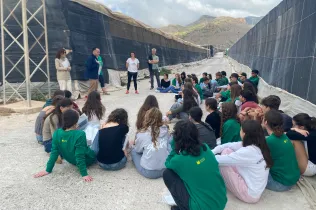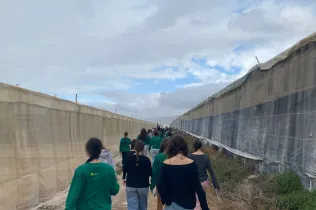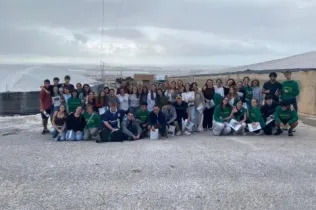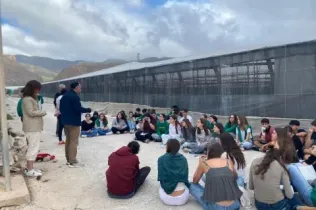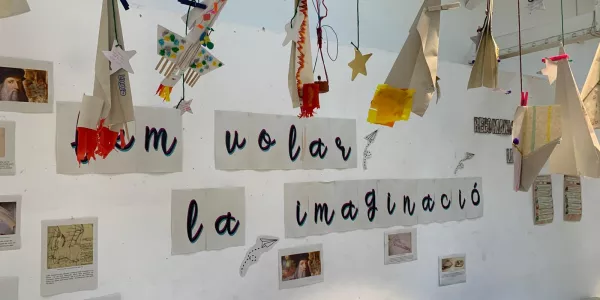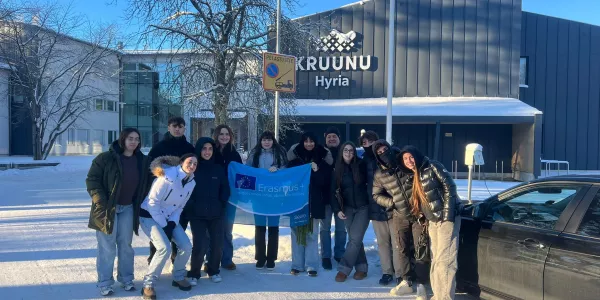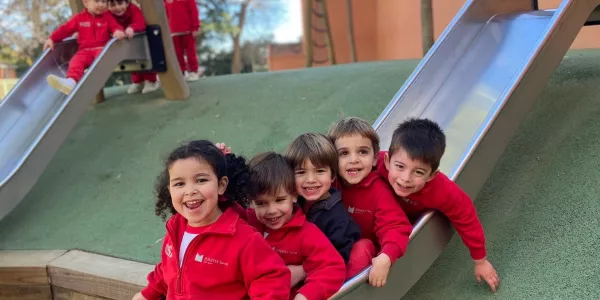October
16th,
2025
Southern Border Experience
The border scenario is an educational space born from the need to cultivate introspection, gratitude, and contemplation in students. In a world that often pulls us toward speed and distraction, these experiences invite us to pause and allow something to transform us.
Image
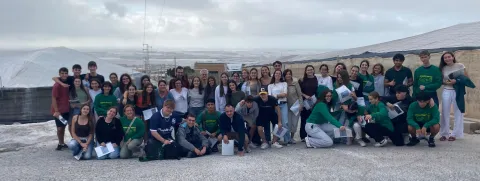
This year, 10 upper secondary students from Sant Ignasi travelled to Ceuta, along with students from other schools in the network, to reflect on the migration process. This is an experiential learning opportunity that brings students closer to a silenced reality: immigration to the Peninsula from Morocco.
A Border Open to the World and the Other
Within this framework, the "border scenario" is not only internal; it is also a space for encountering the other–those who live literally at the edges of our world. We advocate for the inclusion of all people who are forced to flee their territories daily due to war, political, ethnic, or religious persecution, poverty, or the search for opportunities.
In response to this reality, we promote a culture of hospitality that fosters coexistence, plurality, and diversity as the backbone of a more just and supportive society.
From the school, we activate this culture of hospitality with students through concrete experiences linked to the Border Scenarios, which integrate essential values for community life and human growth:
- Cultural, ethnic, sexual, religious, and functional diversity.
- Respect and equality, opposing all forms of discrimination.
- Coexistence and dialogue, to learn together through differences.
- Peaceful conflict resolution, as a path to building peace.
The Border Scenarios invite us to look beyond personal and collective boundaries. They are spaces where education also means humanising, where silence becomes a source of words, and encounters with others become a path to transformation. Ultimately, they represent a commitment to holistic education that unites introspection and engagement, contemplation and action, faith and justice.
Image
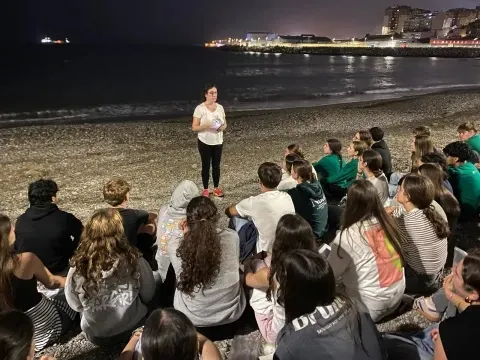
The Southern Border Experience: The Reality of Migration
Understanding the Reality of Migrants and Refugees
The Southern Border Experience invites second-year upper secondary and vocational training students from all schools to travel to Europe’s southern border, with the aim of prompting reflection on the question:
“And I, which side do I want to be on?”
This initiative by the Jesuïtes Educació Foundation seeks to bring students closer to the reality of migration, fostering a critical, empathetic, and conscious perspective on this global phenomenon.
Before travelling to Ceuta, participating students engaged in various activities at their schools to learn about and approach the reality of migration. They visited organisations supporting refugees, learned about the conditions of Foreigner Internment Centres (CIE), and participated in other educational activities that helped them better understand the challenges faced by migrants.
The stay in Ceuta is coordinated with local organisations that support migrants, allowing students to experience firsthand the places, people, and stories behind these experiences. Notable visits include the Benzú border point and meetings with young migrants passing through Ceuta, facilitated by collaboration with the Elin Association.
Through this pedagogical experience, students not only gain theoretical knowledge but also engage emotionally with the reality of migrants, reflecting on their experiences and contexts. This immersion aims to strengthen students’ social commitment, helping them develop a critical and empathetic awareness toward those fleeing conflicts, persecution, or adverse economic and environmental conditions.
The Southern Border Experience is the culmination of the pedagogical commitment of Jesuit schools in Catalonia to understand the reality of migrants and refugees. The activities are tailored to the needs of students at different stages, always aligned with their learning process and framed within the life journey project offered by the pedagogical model.
In summary, this experience not only enriches students’ knowledge but also prepares them to be agents of change in a diverse and complex society, promoting coexistence, plurality, and solidarity.
